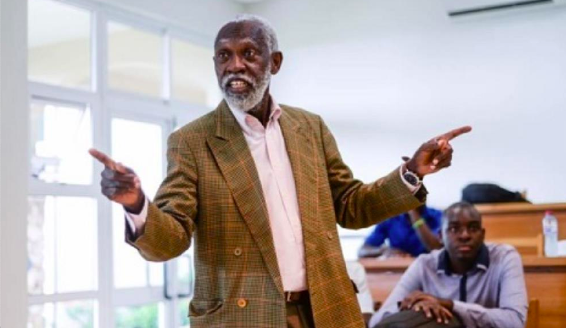Prof. Stephen Adei, a former Ghana Revenue Authority (GRA) Board Chair, is advocating for the Electronic Transfer Levy (E-Levy).
He argues that E-levy is a better solution to income gaps than seeking a bailout from the International Monetary Fund (IMF).
Proposing an E-levy, according to former GIMPA Rector Prof. Adei, is the cure to producing more money and reviving the economy.
“I oppose going to the IMF today. It’s time to quit talking about NPP and NDC and start forward. We don’t need to go to the IMF since they won’t pay us more than half a billion dollars, which is peanuts and less than half of what E-levy would provide us. So we need to adjust policy direction and activities domestically.”
Prof. Adei believes the E-levy money will be adequate to overcome certain revenue gaps and should not be lost.
“I estimate they will collect GH5 billion. 5 billion GHC is over $1 billion. “Even if they don’t receive what they expected, I think the MoMo should be taxed to bring in at least GH5 billion to fill the hole”, the professor added.
He backed up his claim by stating that the E-levy is quite inexpensive compared to other tax systems.
“We must immediately discover low-hanging fruits, and the MoMo tax is one of them. In a poor nation, one of the major tax issues is that if the expense of collection exceeds the revenue, you must let it go. But the MoMo tax collection costs are nearly zero”.
He mentioned this last week on Class FM in Accra.
The administration is now debating whether to impose a contentious 1.75 percent electronic transaction tax that might generate $1 billion yearly or join an IMF program.
The government announced the tax policy in the 2022 Budget on fundamental digital payments and electronic platform transactions.
The budgeted rate was 1.75 percent, but it may be decreased to 1.5 percent. Despite the projected decrease, it faces considerable resistance.
In light of popular dissatisfaction of the E-levy, some experts urge an IMF bailout, but the administration says no way.
Others have dismissed proposals for an IMF plan, stating that Ghana’s choices include fiscal discipline, reducing wasteful spending, and plugging income leakages.
Source: TheBBCghana.Com


















